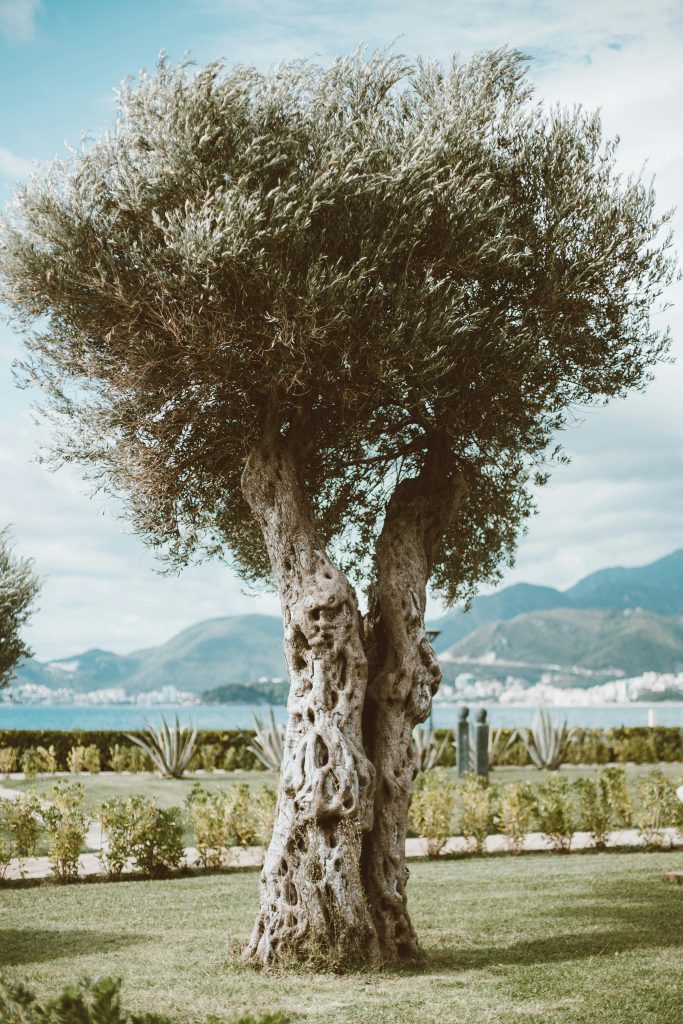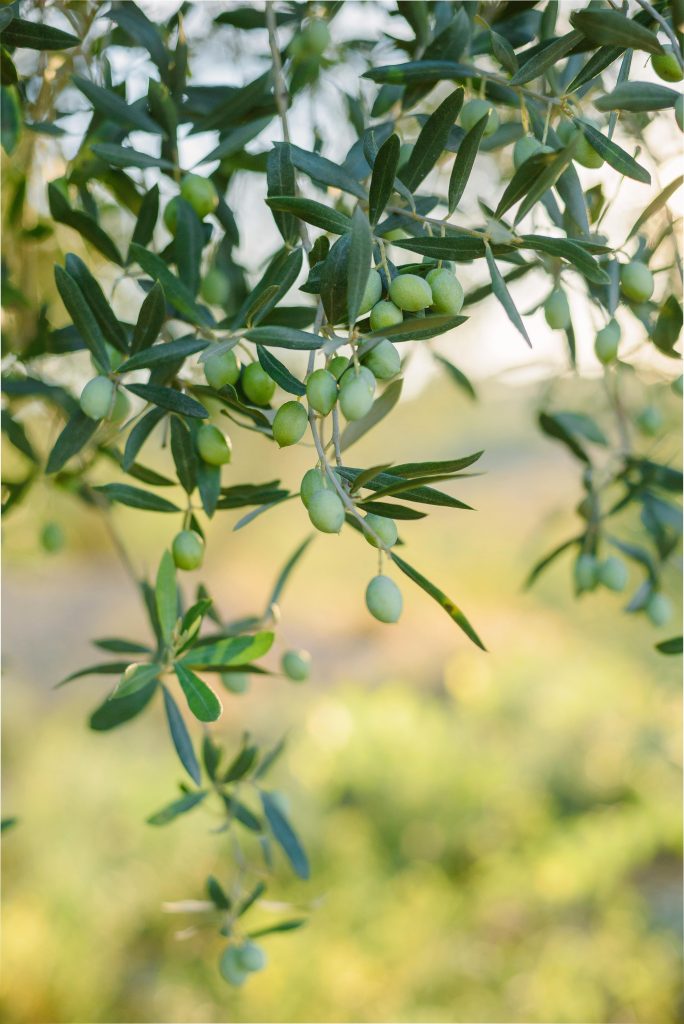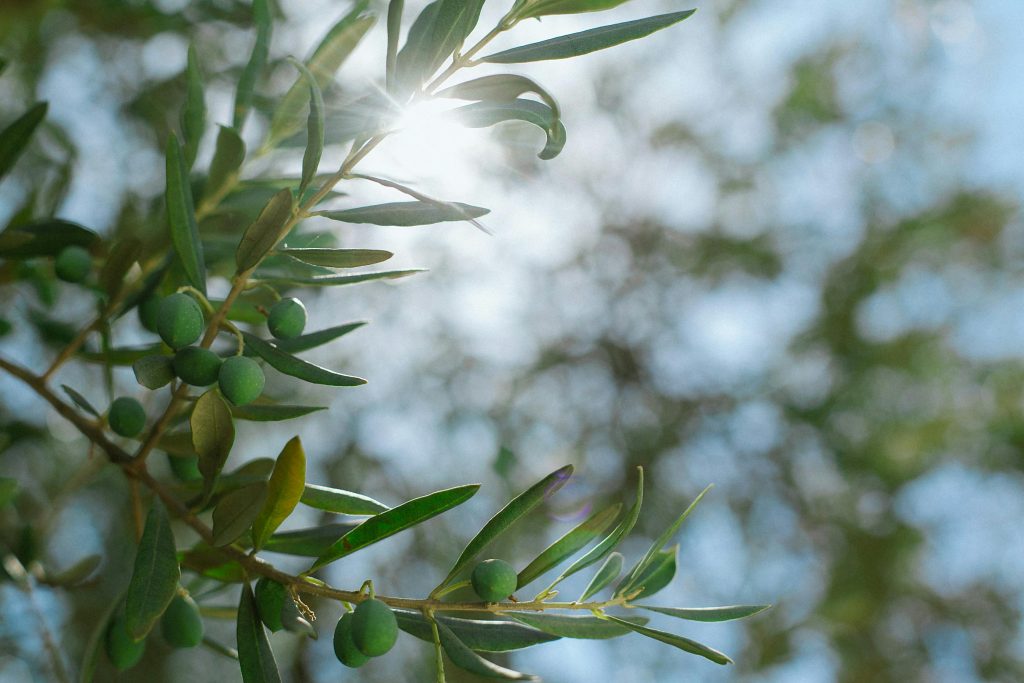When you bite into a briny olive or drizzle golden olive oil over your salad, you’re tasting a piece of ancient history. The humble olive has been cultivated for over 6,000 years, making it one of the oldest—and most culturally significant—plants in the world. Its story is steeped in mythology, diplomacy, trade, religion, and, of course, incredible food. So pour yourself a glass of wine, grab a little bowl of olives, and let’s dive into the deep roots of this extraordinary tree.

🌍 Origins: Where the Olive Tree Began
The wild olive tree, Olea europaea, is native to the Mediterranean basin. Botanists believe it first appeared in the eastern Mediterranean—modern-day Turkey, Syria, and Lebanon—and was domesticated around 4000–6000 BCE. Ancient people began cultivating olives not just for food, but also for oil, which quickly became a treasured commodity.
By the time of the Bronze Age, olives and olive oil were central to economies and daily life across the region. Archaeologists have found olive pits and oil presses in ancient settlements from Greece to Crete to Israel, proving how widespread olive use had become, even thousands of years ago.
🏺 Olive Oil: Liquid Gold of the Ancient World

In ancient times, olive oil was much more than a cooking ingredient—it was currency, medicine, fuel, and sacred offering.
- The Egyptians used it in mummification and cosmetics.
- The Greeks anointed athletes with it before competitions.
- The Romans used it in their public baths and cooking, and traded it across their vast empire.
- The Hebrews regarded olive oil as holy and used it to light sacred lamps.
Olive oil was so valuable that amphorae (large clay jars) filled with oil were used as diplomatic gifts and trade goods. In fact, some historians believe olive oil helped grease the wheels of ancient commerce—literally and metaphorically.
🏛️ Symbolism: Peace, Wisdom, and Victory
The olive tree has been a symbol of peace, resilience, and prosperity for millennia.
- In Greek mythology, Athena gifted the first olive tree to Athens, winning a contest with Poseidon and giving the city her name.
- The olive branch has long represented peace—even the Bible references a dove returning to Noah with an olive leaf, symbolizing the end of the flood.
- Victorious Olympians were crowned with olive wreaths, and olive trees were considered sacred in ancient Greece.
🌱 The Olive in Religion and Ritual
The olive holds spiritual significance in Judaism, Christianity, and Islam.
- In Judaism, the oil used in the Temple menorah had to be pure olive oil.
- In Christianity, olives and olive oil appear throughout the Bible, from parables to the Mount of Olives.
- In Islam, the olive is mentioned multiple times in the Qur’an as a blessed tree.

🚢 Spread of the Olive Tree
As civilizations expanded, so did the olive tree.
- The Phoenicians and Greeks spread olive cultivation across the Mediterranean.
- The Romans perfected olive oil production and helped establish groves in what are now Spain, France, and North Africa.
- When the Moors ruled Spain, they brought sophisticated irrigation and orchard techniques that helped Spain become the olive-growing powerhouse it is today.
Later, Spanish explorers introduced olives to the Americas in the 1500s, particularly to Peru, Mexico, and California—where it thrives in the warm, dry climate.
🫒 Modern Olive Culture
Today, olives are grown in over 40 countries, with the Mediterranean still reigning supreme. Spain, Italy, and Greece lead global production, but California, Australia, Chile, and South Africa are rising stars in the olive oil world.
Olives remain a staple of Mediterranean diets, praised for their health benefits (hello, heart-healthy fats!) and starring in everything from tapenade to martinis.
🌳 A Tree That Keeps Giving
One of the most remarkable things about the olive tree? Its longevity. Some trees in the Mediterranean are estimated to be over 1,000 years old, still producing fruit. In many cultures, families plant an olive tree at a child’s birth and harvest it for generations.
It’s a symbol of rootedness, of resilience through drought and storm. And honestly, isn’t that a beautiful thing to celebrate?
🍽️ Final Thoughts
The next time you swirl olive oil onto your food or snack on a few olives, take a second to remember—you’re participating in a tradition that spans thousands of years, countless cultures, and a legacy of life, peace, and flavor. The olive isn’t just a fruit. It’s a timeless bridge between past and present, land and table, myth and meal.